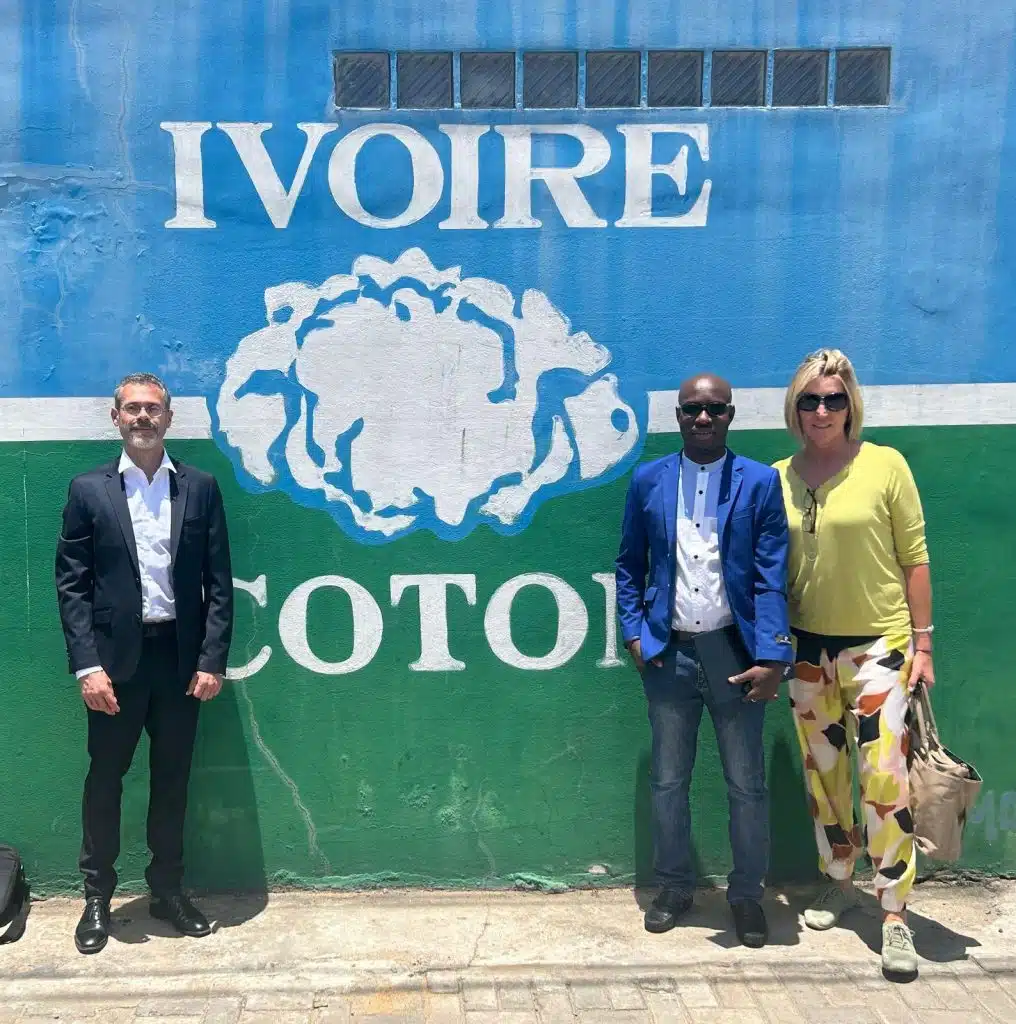
Today, Better Cotton will host a multistakeholder event in Abidjan, Cote D’Ivoire to explore the potential for new programmes and partnerships across West and Central Africa.
Taking place at the Pullman Hotel, Plateau, the event will enable key stakeholders across the region to share their experiences and perspectives on the future of sustainable cotton production on the continent amidst a rapidly changing climate. Delegates will also have the opportunity to learn more about Better Cotton Programmes and the long-term ambitions that underpin its 2030 Strategy.
Representatives from leading cotton companies and organisations including Solidaridad, The Sustainable Trade Initiative [IDH], ECOM, OlamAgri, APROCOT-CI, amongst several others, will participate in discussions to explore opportunities and challenges regarding sustainability in the cotton sector as well as engaging with stakeholders from the cocoa sector for cross commodity learnings.
Better Cotton is committed to building upon its presence across Africa to enable smallholder farmers to mitigate climate change and adopt a continuous improvement approach to sustainable agricultural practice. With a membership spanning farm to retailer and brand level, Better Cotton is strategically positioned to meet supply with increasing demand. At the farm-level, programme partners provide training and resources to small holder farmers to enable social and environmental improvements that culminate in more climate-resilient operations which in turn assist the livelihoods of the farmers.
Better Cotton is proactively engaging with sector stakeholders across West and Central Africa, in countries such as Chad, Cote D’Ivoire, Burkina Faso, Benin, Togo and Cameroon, to develop multistakeholder collaboration to start impactful Better Cotton programmes.
In November, several West African cotton producing countries, including Benin, Burkina Faso, Mali and Chad – often referred to as the Cotton-4 – called for support to strengthen the resilience of their cotton industries at the World Trade Organisation’s Cotton Days event.
A report from the Food and Agriculture Organization of the United Nations (FAO) at that time estimated that cotton production would increase in the four nations over the coming years, provided appropriate action is taken to promote sustainability standards, empower women and youth and reduce trade-distorting subsidies.
The event signifies an important opportunity for cotton stakeholders in Africa to engage with one another and explore partnerships needed to ensure market access and improved sustainability for cotton growers.







































